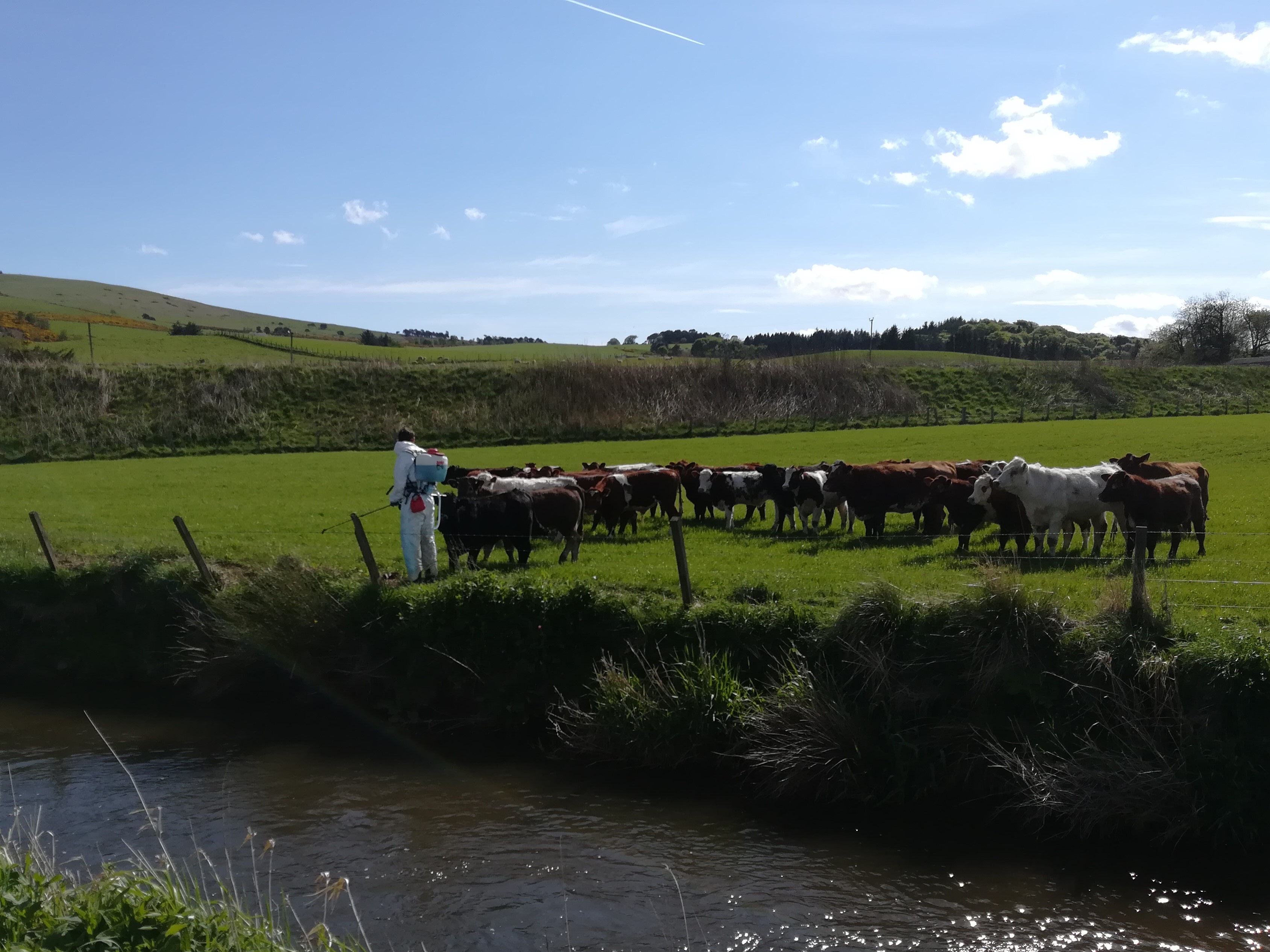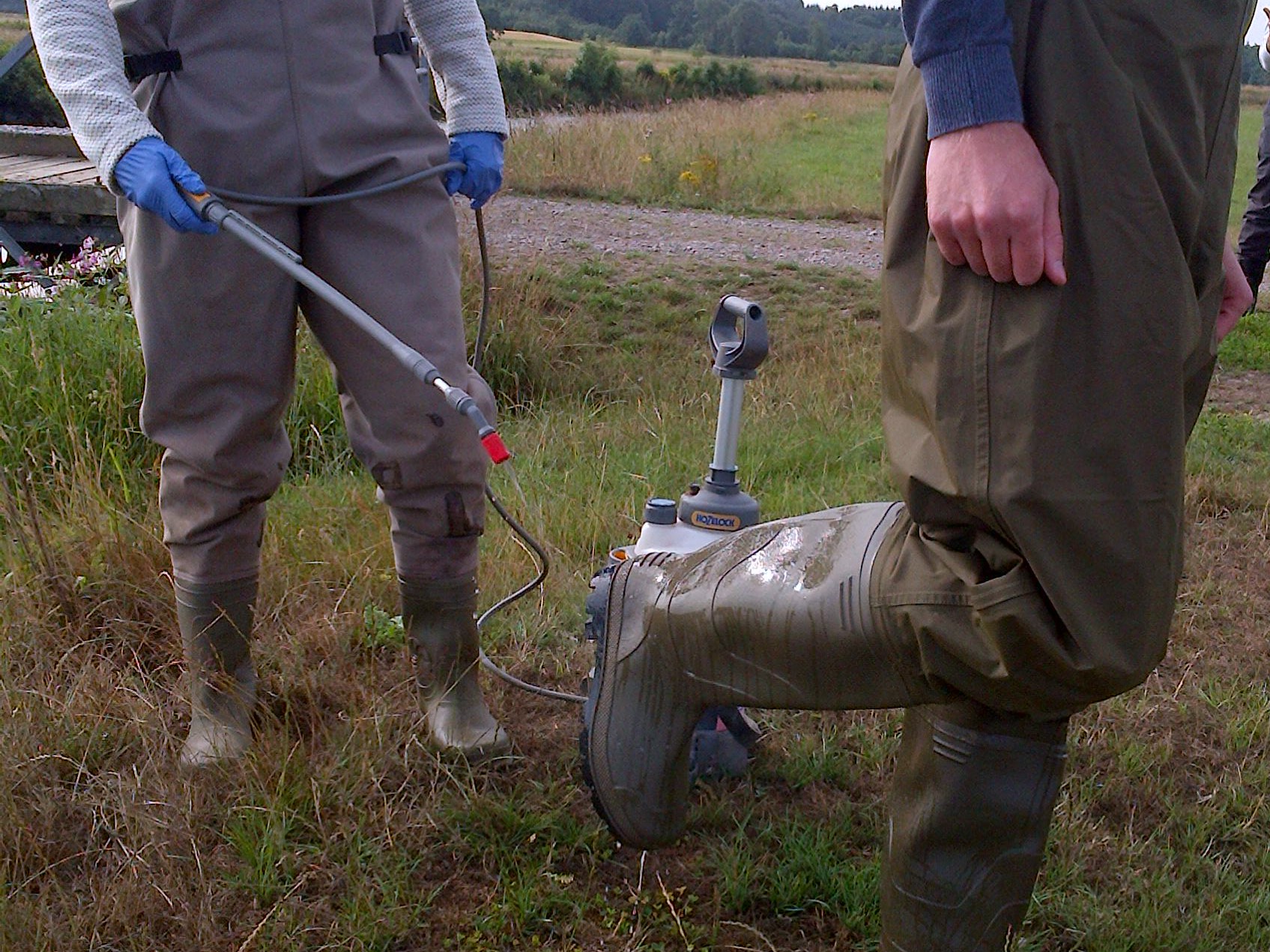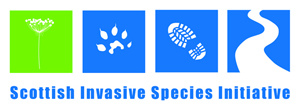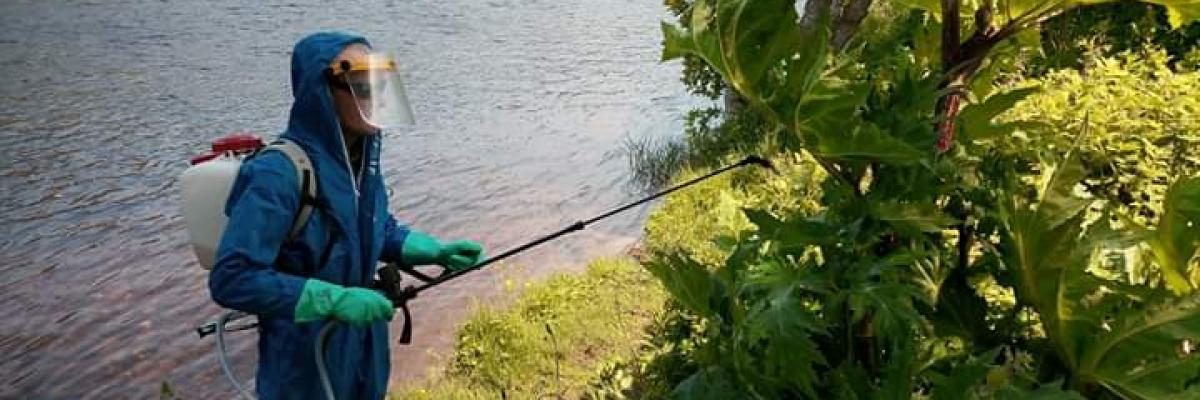These guidelines are to help improve your own personal safety while carrying out outdoor conservation work with the Scottish Invasive Species Initiative. This guide is also available as a pdf.
In everyday life all activity involves hazards - but the activity may not be risky. This information describes the possible hazards associated with outdoor work and how you can keep yourself safe. All the activities you undertake with the Initiative have been risk assessed and controls put in place to reduce and mitigate identified risks. Our staff are qualified first aiders and first aid kits will be on site.
Accident and Incident Reporting
We need to know if you have any accidents or injuries while volunteering with us, no matter how minor.
Please report these to the person in charge as soon as possible.
Before going out
If you are cold, hungry and getting bitten by midges you are not going to have a very good day - so take a minute to think about what you need to make your day working outdoors a pleasant experience!
- Clothing. Make sure you are appropriately dressed for the task and weather. Wear old comfortable clothes, (layers are best). Take waterproofs* / sunhat as appropriate (or knowing the Scottish weather – both). Wear strong sturdy boots or if the task calls for it wellies*/waders*.
*We may be able to lend you this gear if you don’t have it.
- Food & drink. Take sufficient food and drink for the day, and appropriate to the weather. In hot weather put in an extra bottle of water, in winter take a flask with a hot drink. And most importantly don’t forget your lunch!
- Medical. Cover all cuts and open wounds with waterproof plasters and bring any medication you may need with you e.g. inhalers. Apply sunscreen and insect repellent and take it with you to re-apply during the day. You may also wish to take your own hand cleanser gel etc.
- Know about Ticks. Ticks are small bugs that can attach to your skin and, while this poses no problem, there is a small risk that the tick could carry Lyme disease which may then be contracted via the bite. Lyme disease causes flu-like symptoms and may be accompanied by a “bulls-eye” rash on the bite site. To minimise the risk of being bitten wear insect repellent and keep skin covered. If you are bitten, remove the tick carefully using a tick hook or tweezers. This information leaflet from NHS Scotland about ticks may be useful.
While outdoors
Enjoy yourself! We want you to have a great day with us and stay safe doing so. If you have any questions or concerns, please raise these or ask for clarification.

- Be aware of your surroundings.
- You may be working on rough, uneven ground and/or on steep banks or near water, so to take extra care getting around the site.
- Be aware of potentially hazardous plants (giant hogweed, nettles etc) and animals / insects e.g. wasps, bees, adders. Avoid contact with farm animals and try to avoid crossing fields containing cattle. Also, don’t forget there may be other members of the public in the vicinity of your work site.
- You may be working on rough, uneven ground and/or on steep banks or near water, so to take extra care getting around the site.
- Wear the PPE. Wear any Personal Protective Equipment (PPE) you are issued. This may include work gloves, safety glasses, high visibility vests, coveralls etc.
- Look after your body. Not everyone is used to being outdoors and doing physical work. Ensure you take rest breaks when you need to, drink sufficient to stay hydrated, and if bending or lifting, practise good manual handling technique.
- Practice good hygiene. The best prevention against most diseases found outdoors is to practice good hygiene; ensure all open cuts or wounds are covered and clean your hands before eating. Staff will have hand cleanser/wipes available.
Diseases to be aware of (but not scared by!):- Weil’s disease (Leptosporosis) is a bacterial infection carried most commonly by rats and cattle. It can be caught by humans through contact with infected rat or cattle urine, most commonly occurring through contaminated fresh water.
- Soil borne diseases. E.g. Tetanus and Toxoplasmosis. Ensure your tetanus vaccination is up to date.
Chemical use
Some volunteers may be using pesticides for the first time – supervised by qualified staff.
- The chemical we commonly treat invasive plants with is a weed killer called Glyphosate (trade name “RoundUp”). To protect you the PPE we provide ensures that you will not come into direct contact with Glyphosate. Follow instructions carefully in the use, and removal of, your PPE.
- If you do come into contact with Glyphosate the immediate action is to remove any contaminated clothing, jewellery, wrist watches etc. and wash the skin, or flush eyes, thoroughly with water.
- In the event of a spillage, especially of concentrated product, notify the person in charge.
At the end of the day
We hope you’ll feel a sense of satisfaction and achievement for a job well done and be enthused and inspired from being in the natural environment, but there are a couple of things to do before you switch off.

- Biosecurity. Biosecurity is about reducing the risk of spreading invasive species and diseases around the countryside. Follow the simple “Check, Clean, Dry” biosecurity routine when you’ve been in the countryside:
- Check – Before leaving a site check footwear and equipment for soil, plant or animal matter, small organisms etc. Carry a basic biosecurity kit (hoofpick, brush & water) and remove debris on site.
- Clean - Clean and wash footwear, clothing and equipment with appropriate disinfectants, ideally on site, where the washings should be left.
- Dry - Dry your kit and footwear thoroughly - some species can live for many days in damp, moist conditions.
- Wash up. If you’ve been using herbicide or have been near giant hogweed it’s advisable to wash yourself and your clothes in case any minor transfer occurred.
- Health Check. After a day in the outdoors it’s a good habit to check yourself for ticks and minor cuts and grazes, and clean and treat these as appropriate.

